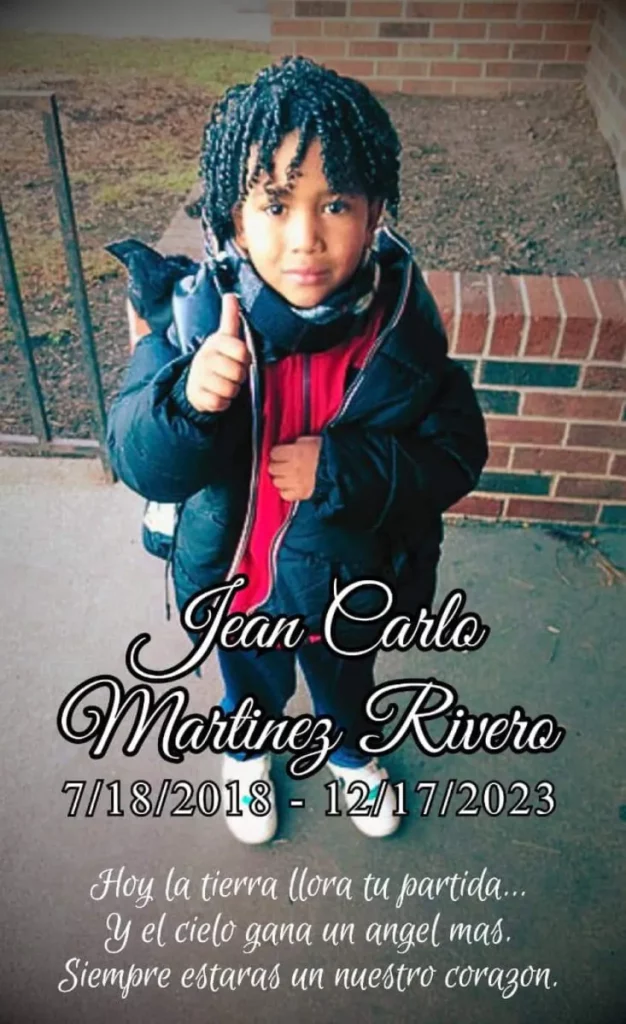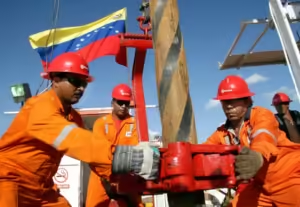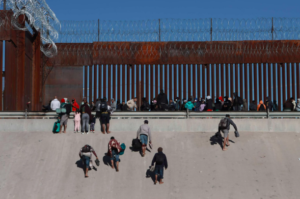Early Sunday, a young Venezuelan died in the Pilsen neighborhood of Chicago at a migrant facility called the Halsted Shelter. Under freezing temperatures, Jean Carlos Martinez Rivero, did seek additional help that could not be found. Overcrowding, hygiene and the consequence of havign many unvaccinated individuals in one center have taken ahold.
At the moment, its not clear what caused Jean Carlos’ death. The cause could have involved some kind of flu, or even COVID, at a Pilsen police shelter. The facility in which Martinez Rivero was housed is not likely staffed sufficiently to deal with the high needs of the shelter’s inhabitants.
The five-year old’s parents looked for additional help but found none in the facility where they were held. Eventually, that Sunday, Jean Carlos Martinez Rivero decided to give the boy a shower at which point he began to bleed and convulse for reasons possibly relating to easy to treat diseases with inoculations, but that still exist within populations leaving a dysfunctional country with no medical services.
Adding to the issue, temporarily, many Venezuelans are under the auspices of the Chicago Police Department. I’m certain that neither the Venezuelans held under the shelter nor the CPD are too fond of the arrangement, but neither social workers nor other kinds of government officials can be expected to bear the real brunt of security under these unique circumstances.
This is one story of many, repeated throughout the Americas and a direct consequence of incessant intervention in the region. If the US had not encouraged the collapse of the Venezuelan social net that impacted these wayward peoples, then perhaps, we would not be witnessing so many families wandering aimlessly in the cold, underdressed and in poor health during a time in which most people are thinking of christmas presents and vacation, not on employing newcomers.
Where’s the problem?
When it comes to immigration, we have Republican fantasies that involve hordes of people invading. On the Democratic side, we appear to have issues understanding the dimensions of the problem. The real cost both to the misled migrants impose on themselves and the cost their choices imposed on the limited social network that can support them when they arrive to United States.
There’s also the fact that in between the United States are large groupings of countries that either are forced to police these migrant caravans or encouraged to let them pass only for these groups to barge into distinct checkpoints. Amnesty International, HRW and other groups perform commendable work documenting government abuses, but these border crossing areas were not designed for comfort or illegality. It’s as if there’s a higher standard of behavior on poorly paid border guards in Mexico than on US ones.
Neither established politicians or fervent upstarts seem to have answers. Worse still, the charlatan ogres in the Texas governorships in Florida or Texas pretend to have a real solution that involves draconian measures that seem to be an indirect way to codify racism since the secondary effects involve increased police intervention on the day to day lives of Hispanic populations. Mexicans, for instance, being a native population of the US Southwest seems to go over the heads of these politicians, but the immigration discussion always centers on white plight and victimhood shrouded in speech around safety.

Migrants say illnesses spread quickly at crowded Chicago shelter – Chicago Sun-Times (suntimes.com)
Ill Equipped
Migration is not often planned under favorable circumstances, and much of the lore around America’s promise is predicated on falsehoods, like freely available work and friendly venues that offer a reprieve for some of the nation’s harder immigration enforcement. In the past, like for Italians, the country has set up some kind boarding house situation to permit them a steady bit of shelter, but while this exists to a limited extent, it does not quite exist to prevent more of these deaths.
For the past 8 years, Venezuelan migration has remained at record highs. Globally, the total number of Venezuelans who have been forced to move to Colombia, Peru or Ecuador is around 8 million with a very visible, but much smaller number, headed to the United States. According to the US Department of Homeland Security, 13,000 Venezuelan migrants have been deported since this May. There is still the remaining group held in detention centers while also processing asylum requests in major US Cities; often these applications involve entire families.
Petro State In Decline
Venezuela’s status as a petro-state, a term used to denominate a country that is dependent on oil linked revenue, is much to blame for the economic downfall of the country. Very few industry alternatives have been developed in the country, which has been on the decline since 2014’s transition to Nicolas Madura after the death of Hugo Chavez.
One of the issues that precipitated this decline is the US Embargo on Venezuelan oil. While Colombia has recently permitted some trade between the two states, most of the world is blocked from purchasing oil or sources it elsewhere due to a commitment for regime change, which is a modern way of saying ‘imperialism’ and ‘colonial’ economic enslavement. Thus, while the country has had vast amounts of corruption and underdevelopment, there is also the non-trivial component of limited market access thanks to the United States, United Kingdom and European Union, who wish nothing more than to appropriate the resources of the country for their energy conglomerates.
Why is Venezuelan Migration Unique?
Extreme poverty in and of itself is not usually cause for a legitimate asylum case. While most in the left would characterize the Venezuelan cause as equal parts US intervention and Venezuelan government dysfunction, when it comes to the actual issue of Venezuelan migration through Colombia to the Darien, they are a bit more lost on what the appropriate conclusion or opinion.
First of all, crossing the Darien is extremely perilous. The Darien jungle is a dense, tropical rainforest north of Colombia and east of Panama, which is also home to indigenous people who limit contact with governments as well. There is something to be said about the disturbance this migration pattern causes to those natives.
These are regions that have been relatively untouched with the exception of revolutionary wars and border skirmishes between states. Disease, predation, both natural and social, is constant and the risk reward ratio should be scrutinized. In Colombia, 2.8 million Venezuelans already have established some kind of residency or simply live in the country. As such, Venezuelans have the option to stay in Colombia or Peru without being bothered or even Venezuela itself. They would have access to some economic relief if they worked within those economies.
Relative to the risks in the journey, the options should be clear cut when considering that many travel impulsively with entire families, which is not common for other groups seeking to migrate to the US. Usually, these involve single, working age and able-bodied men carving out a path for their family.
Many of these Venezuelan immigrants are fleeing poverty, but with absolutely no insight as to where and how they should work. For instance, many of them are arriving with their entire family expecting to be housed, like homeless people, in some accommodation. In many cases, the myth that these facilities even existed is what perpetuated the immigration in the first place.
In short, social media has become a platform for such disinformation – it is misleading the desperate.







